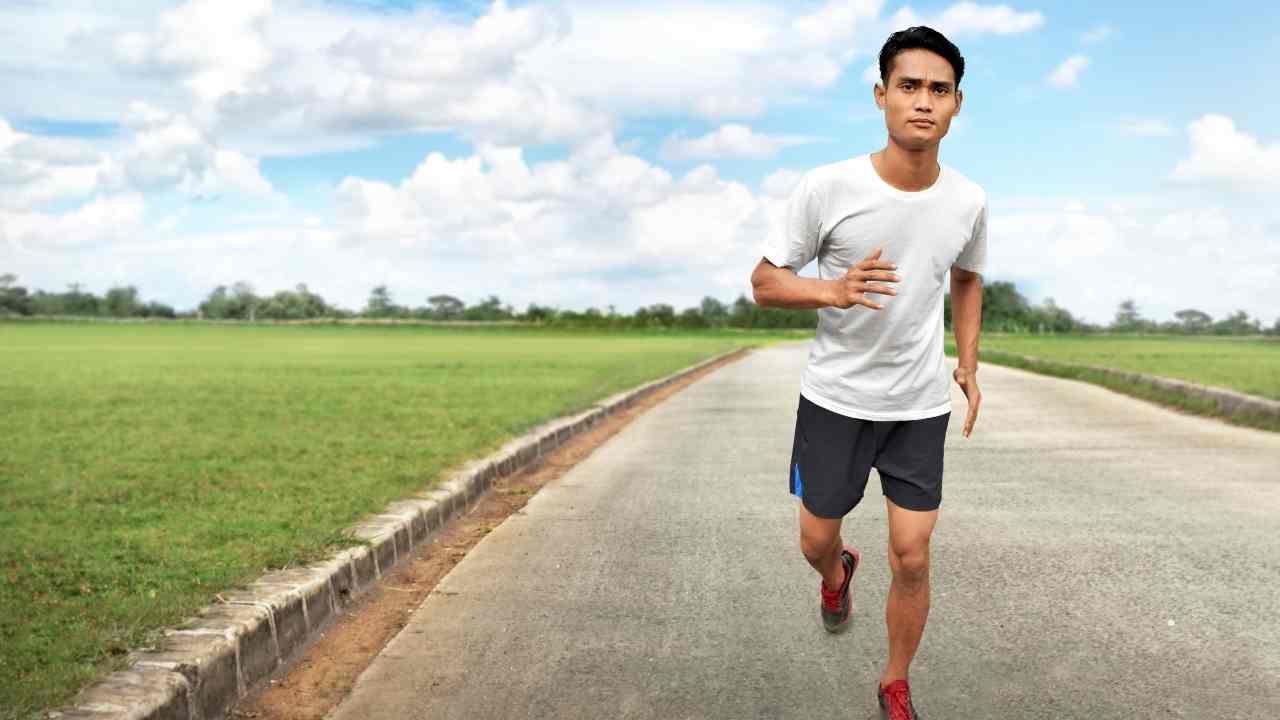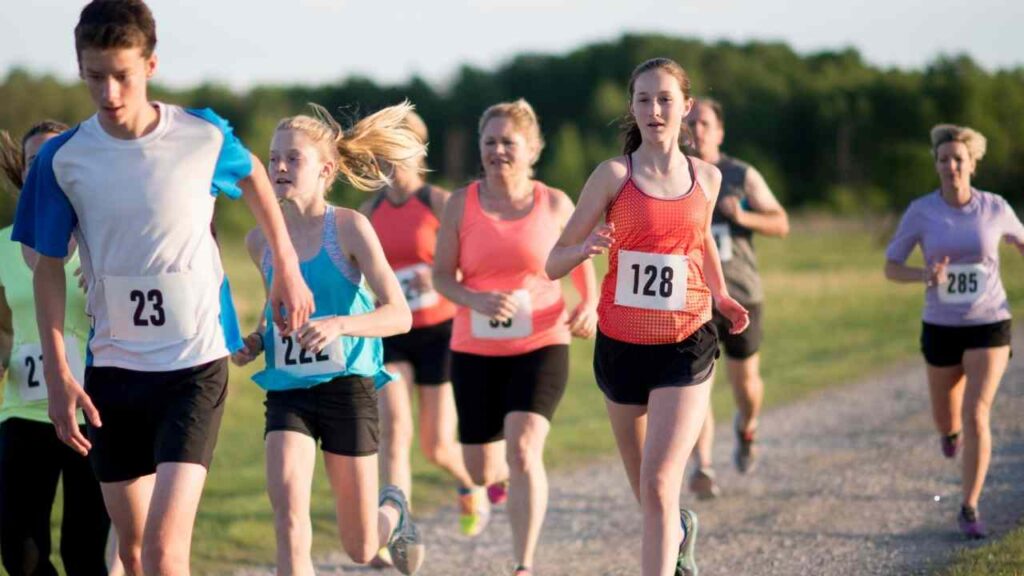What to Eat Before and After a Long Run: Running, especially long-distance running, is a fantastic way to stay fit and healthy. However, to perform at your best and recover effectively, it’s crucial to fuel your body with the right foods before and after your run. For Indian runners, balancing traditional Indian meals with modern nutritional advice can make a significant difference in performance and recovery. In this article, we’ll explore what to eat before and after a long run, focusing on Indian dietary preferences and easy-to-find ingredients.
Table of Contents
1. Introduction
Long-distance running demands not only physical endurance but also proper nutrition. Whether you’re training for a marathon or simply enjoy long runs, what you eat before and after your run can impact your energy levels, performance, and recovery. For Indian runners, incorporating familiar foods like roti, rice, dal, and fruits can make meal planning easier and more effective. This guide will help you understand the best pre- and post-run meals tailored to Indian dietary habits.
2. Why Nutrition Matters for Long Runs
Running long distances depletes your body’s glycogen stores, breaks down muscle tissue, and causes fluid loss through sweat. Proper nutrition helps:
- Provide energy for the run
- Prevent fatigue and muscle cramps
- Speed up recovery
- Replenish lost nutrients
Without the right fuel, you may feel sluggish, experience muscle soreness, or even risk injury.
3. What to Eat Before a Long Run
Your pre-run meal should be rich in carbohydrates, moderate in protein, and low in fat and fiber to avoid digestive issues. Here’s a breakdown of what to eat at different times before your run:
3-4 Hours Before the Run
If you have a few hours before your run, opt for a balanced meal that includes complex carbs, lean protein, and a small amount of healthy fats. Some Indian options include:
- Meal Idea 1: Roti with dal, a small bowl of curd, and a banana
- Meal Idea 2: Rice with vegetable curry and a side of paneer
- Meal Idea 3: Idli or dosa with sambar and coconut chutney
1-2 Hours Before the Run
If you’re eating closer to your run, choose lighter options that are easy to digest:
- Snack Idea 1: A banana with a handful of almonds
- Snack Idea 2: A small bowl of poha or upma
- Snack Idea 3: A slice of whole-grain bread with peanut butter
30 Minutes Before the Run
For a quick energy boost, have something small and easily digestible:
- Option 1: A date or two
- Option 2: A small piece of dark chocolate
- Option 3: A few sips of an electrolyte drink
4. What to Eat After a Long Run
Post-run nutrition is critical for recovery. Your body needs to replenish glycogen stores, repair muscles, and rehydrate. Here’s what to eat:
Within 30 Minutes of Finishing
Focus on quick-digesting carbs and a small amount of protein:
- Option 1: A banana with a glass of milk or lassi
- Option 2: A protein shake with a handful of nuts
- Option 3: A small bowl of curd with jaggery
1-2 Hours After the Run
Have a balanced meal that includes carbs, protein, and healthy fats:
- Meal Idea 1: Khichdi with a side of curd and a boiled egg
- Meal Idea 2: Roti with chicken curry or paneer bhurji
- Meal Idea 3: Rice with dal, vegetables, and a piece of fish (if non-vegetarian)
5. Hydration Tips for Long Runs
Staying hydrated is just as important as eating the right foods. Here are some tips:
- Drink 500 ml of water 2 hours before your run.
- Sip water or an electrolyte drink during your run if it’s longer than an hour.
- Rehydrate after your run with coconut water, buttermilk, or plain water.
6. Indian Foods Perfect for Runners
Indian cuisine offers a variety of runner-friendly foods:
- Carb Sources: Rice, roti, poha, idli, dosa
- Protein Sources: Dal, paneer, curd, chicken, fish, eggs
- Healthy Fats: Ghee, nuts, seeds, coconut
- Fruits and Vegetables: Bananas, oranges, papaya, spinach, sweet potatoes
7. Common Mistakes to Avoid

- Skipping Pre-Run Meals: Running on an empty stomach can lead to low energy levels.
- Overeating Before a Run: Heavy meals can cause discomfort and cramps.
- Ignoring Post-Run Nutrition: Delaying meals after a run slows down recovery.
- Not Hydrating Enough: Dehydration can affect performance and recovery.
8. Sample Meal Plans for Indian Runners
Pre-Run Meal Plan:
- Breakfast: Poha with peanuts and a glass of buttermilk
- Snack: A banana with a handful of almonds
Post-Run Meal Plan:
- Snack: A glass of lassi with a date
- Lunch: Roti, dal, vegetable curry, and a bowl of curd
The Science Behind Running Nutrition
Understanding the science behind what to eat before and after a long run can help you make better dietary choices. During a long run, your body primarily uses glycogen (stored carbohydrates) for energy. Once these stores are depleted, your performance can suffer, leading to fatigue and “hitting the wall.” Consuming carbohydrates before a run ensures that your glycogen stores are fully stocked.
After a run, your muscles are in a state of repair. Protein intake helps rebuild muscle fibers, while carbohydrates replenish glycogen stores. This combination is essential for recovery and preparing your body for the next run.
Tailoring Nutrition to Your Running Goals
Your nutritional needs may vary depending on your running goals. For example:
- Marathon Training: Requires higher carbohydrate intake to sustain energy over long distances.
- Weight Loss: Focus on a balanced diet with a slight calorie deficit, ensuring you still get enough energy for your runs.
- Casual Running: A general balanced diet with attention to pre- and post-run meals is sufficient.
Indian Superfoods for Runners
Indian cuisine is rich in superfoods that can enhance your running performance:
- Turmeric: Known for its anti-inflammatory properties, it can help reduce muscle soreness.
- Moringa (Drumsticks): Packed with vitamins and minerals, it boosts overall health.
- Amla (Indian Gooseberry): High in vitamin C, it strengthens immunity and aids recovery.
- Jaggery: A natural source of iron and quick energy, perfect for post-run snacks.
Meal Timing and Portion Control
Timing your meals correctly is as important as what you eat. Here’s a quick guide:
- Pre-Run: Eat a full meal 3-4 hours before running and a light snack 1-2 hours before.
- Post-Run: Have a small snack within 30 minutes and a full meal within 2 hours.
- Portion Control: Avoid overeating, especially before a run, as it can lead to discomfort.
Seasonal Adjustments for Indian Runners
India’s diverse climate means your nutritional needs may change with the seasons:
- Summer: Focus on hydration and include water-rich foods like watermelon and cucumber.
- Monsoon: Be cautious with street food to avoid stomach infections; stick to home-cooked meals.
- Winter: Include warming foods like soups and herbal teas to keep your energy levels up.
The Role of Supplements
While whole foods should be your primary source of nutrition, supplements can help fill gaps:
- Protein Powder: Useful for meeting protein needs, especially for vegetarians.
- Electrolyte Tablets: Helpful during long runs in hot weather.
- Multivitamins: Ensure you’re getting all essential nutrients, especially if your diet is restrictive.
Listening to Your Body
Every runner is unique, and what works for one person may not work for another. Pay attention to how your body responds to different foods and adjust your diet accordingly. For example, if you feel sluggish after eating rice before a run, try switching to roti or oats.
The Importance of Consistency
Consistency in your diet is key to seeing long-term benefits. Stick to a routine that works for you, and don’t make drastic changes before a big race or event.
By following this comprehensive guide, Indian runners can optimize their nutrition for long-distance running, ensuring better performance, faster recovery, and overall well-being. Happy running!
FAQs: What to Eat Before and After a Long Run
Q1. Can I run on an empty stomach?
A: It’s not recommended for long runs. A small snack like a banana or a date can provide the energy you need.
Q2. Is it okay to eat spicy food before a run?
A: Avoid spicy or heavy foods before a run as they can cause digestive issues.
Q3. How much water should I drink during a long run?
A: Sip water every 15-20 minutes, especially if you’re running for more than an hour.
Q4. Can I eat sweets after a run?
A: A small amount of natural sugar, like jaggery or fruits, is fine, but avoid processed sweets.
Q5. Are energy drinks necessary for long runs?
A: For runs longer than an hour, electrolyte drinks can help replenish lost salts and energy.
10. Conclusion
Proper nutrition is the backbone of a successful long-distance running routine. By choosing the right foods before and after your run, you can boost your performance, speed up recovery, and enjoy your runs more. Indian runners have the advantage of a diverse cuisine that offers plenty of nutritious options. So, fuel up wisely, stay hydrated, and hit the road with confidence!
This article is optimized for SEO with relevant keywords like “what to eat before and after long run,” “Indian runners nutrition,” and “long-distance running tips.” It’s written in a conversational tone to resonate with readers while providing actionable advice.

